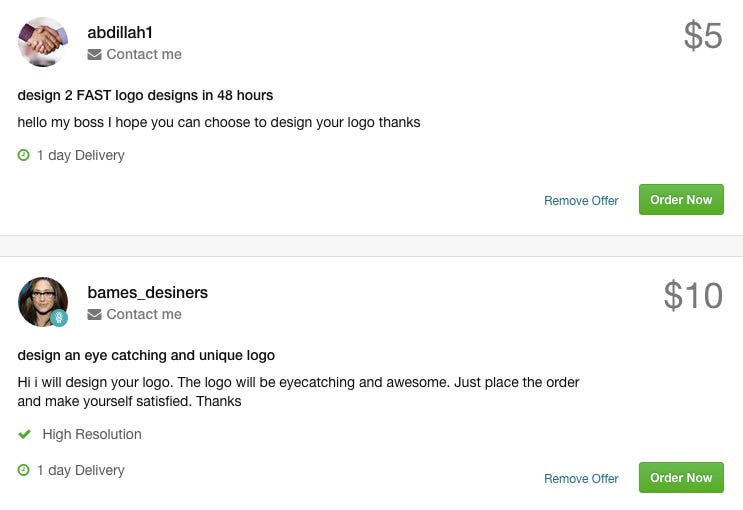Welcome and thanks for joining!
I
If you’re getting this email, it probably means you signed up or agreed to let me subscribe you. But perhaps it just appeared in your inbox! The Internet works in mysterious ways. At any rate, thanks for joining, and make sure you click “display images” to get the full experience.
My current vision for this newsletter is that it will drop once a week, but, as with all things, that could change. I’m also in the market for someone who could draw up a header image, and will happily take recommendations. As a sort of meta-exercise, I’ve posted an art request on Fiverr, (a self-described “marketplace for creative & professional services”), but the preliminary results are uninspiring.

 Instacart before the horse.
Instacart before the horse.
Instacart is a startup that uses an app and a network of "shoppers" to deliver groceries from stores to customers in as little as an hour. (That carrot is its logo, and I really think ought to be called the "Instacarrot.") Instacart sped to a $2 billion valuation by promising to become the Uber of groceries. Like Uber, Instacart envisioned offering a convenient service at the touch of a button, with minimal physical assets—i.e., no trucks or warehouses, independent contractors instead of employees.
Uber-for-X is a popular sharing economy model, but Instacart is a case study in how it doesn't always translate. Instacart is being sued for allegedly misclassifying its workers. It's slashing pay rates for some shoppers, and putting others on probation. It's also raised prices for customers and suspended one-hour delivery in New York. (Ever optimistic, Instacart says it will be profitable by the summer, so long as you exclude from the calculation costs like office space, shopper acquisition, and the salaries of employees at its San Francisco headquarters, because, really, why wouldn't you?)
From the regulatory front.
Uber conceded a regulatory battle in Florida last week when SB 1118, a bill that would have supported it and other ride-hailing services, fizzled in the state legislature. That wasn't for lack of trying. Here is a story from last Thursday about how Uber campaigned for the bill as the legislative session was running out:
Florida residents who open the Uber app today won't see the typical estimated time to summon a car, but rather a message that reads "tap to vote for Uber." This leads to a second message: "Legislation currently blocked in the Florida Senate would allow all Floridians access to Uber." Users are then urged to register their support (green checkmark) or opposition (red x) to that statement.
This brings up a third, more existential message. "It's not hard to hold an up or down vote," it reads. "There are only three days left in the 2016 session for the State Senate to vote on allowing all Floridians access to Uber. A bill that would do just that passed the House 108-10, but Senate President Gardiner is refusing to even let the Senate take a vote." (Emphasis theirs.)
We think of Uber as an app for getting a ride—and maybe a package, or a meal—but it's also a powerful communication tool that Uber has used to great political effect.
And here is a profile of Ann Kitchen, the 61-year-old Austin councilwoman taking on Uber in Austin, Texas, who "used to work as a social worker" and "does not fit a stereotype of a ragged, political bruiser."
Elsewhere in the world, Spain is under pressure to embrace the sharing economy and Italy is considering a bill that would define and regulate it.
From the funding front.
WeWork, a trendy office space empire, has reportedly raised $430 million in new funding that values it at $16 billion, the same as Snapchat and Chinese taxi/ride-hailing company Didi Kuaidi. WeWork is also being sued by an ex-employee for wrongful termination. Does WeWork's business of institutionalizing beer taps in offices for millennials justify its $16 billion valuation? Could an economic downturn bring the company crashing down? "It has nothing to do with the economy," said WeWork last May. "It has nothing to do with anything other than humanity." Says one real estate operator: "I honestly think it's a bubble."
Other stuff.
GM buys self-driving car software. Carnegie Mellon rebuilds from the "Uber crisis." Lyft employee who went to Uber and was sued by Lyft for stealing company secrets says Lyft invaded his privacy. The gig economy is helping America's middle class. The gig economy is hurting America's middle class. Philadelphia Union teams up with Uber (not that kind of union). Parking cars isn't a great business. On-demand massage apps.
Thanks again for subscribing to Oversharing! If you, in the spirit of the sharing economy, would like to share this newsletter with a friend, you can direct them to sign up here. Send tips, comments, and your favorite gifs to oversharingstuff@gmail.com. Thanks to Matt Phillips for the name.

